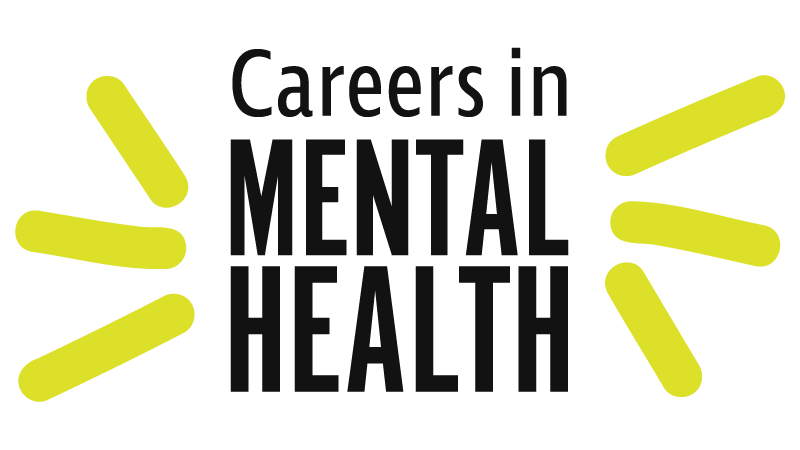Mental Health Careers: How to Join, Earning Potential, and Criteria

In today’s rapidly evolving world, mental health has become a crucial area of focus, with increasing awareness and a growing demand for professionals in this field. Careers in mental health—such as mental health counselors, therapists, and support workers—play a pivotal role in helping individuals navigate and overcome mental health challenges.
If you’re considering a career in this rewarding field, understanding the steps to get started, potential earnings, and necessary qualifications is essential. This comprehensive guide will provide an in-depth look into how to enter mental health careers, what you can expect to earn, and the criteria needed to succeed.
Why Pursue a Career in Mental Health?
Pursuing a career in mental health is not only about finding a job—it’s about making a real difference in people’s lives. The rise in mental health issues, including anxiety, depression, and stress-related disorders, highlights the need for skilled professionals who can provide support and guidance. By working in this field, you’ll contribute to the well-being of individuals and communities, helping to improve overall quality of life and foster resilience.
The Growing Importance of Mental Health Professionals
The importance of mental health professionals has grown exponentially in recent years. As society becomes more aware of mental health issues and their impact on overall health, the demand for trained professionals continues to rise. Mental health professionals work to reduce stigma, provide effective treatment, and support individuals in managing their mental health challenges.
Types of Mental Health Careers
Mental health counselors are trained to provide therapeutic support to individuals dealing with emotional, psychological, and behavioral issues.
Their responsibilities include:
* Assessing Client Needs: Counselors evaluate clients’ mental health through interviews, assessments, and observations.
* Developing Treatment Plans: They create tailored treatment plans that address clients’ specific needs and goals.
* Providing Therapy: Counselors use various therapeutic techniques to help clients manage and overcome their issues.
* Monitoring Progress: They track clients’ progress and adjust treatment plans as needed.
Mental health counselors work in diverse settings such as private practices, community health centers, and schools. Their work can involve one-on-one sessions, group therapy, and family counseling.
Therapists: Specializations and Work Environments
Therapists, including clinical psychologists and marriage and family therapists, focus on diagnosing and treating mental health disorders through various therapeutic methods.
Key aspects of their roles include:
* Conducting Psychological Assessments: Therapists use diagnostic tools to understand clients’ mental health conditions.
* Providing Specialized Therapy: They offer therapy based on their specialization, such as cognitive-behavioral therapy (CBT), psychodynamic therapy, or humanistic therapy.
* Collaborating with Other Professionals: Therapists often work with psychiatrists, social workers, and medical professionals to provide comprehensive care.
Therapists can be found in hospitals, private practices, mental health clinics, and academic settings. They may specialize in areas such as child psychology, trauma therapy, or substance abuse.
Support Workers: Providing Essential Assistance
Support workers assist individuals with mental health issues by offering practical help and emotional support.
Their roles often include:
* Assisting with Daily Activities: Support workers help clients with daily tasks such as cooking, cleaning, and managing finances.
* Providing Emotional Support: They offer companionship and emotional encouragement to help clients cope with their challenges.
* Connecting Clients with Resources: Support workers help clients access additional resources such as community services, healthcare, and support groups.
Support workers can be employed in residential facilities, community organizations, or provide in-home support.
How to Become a Mental Health Counselor
To become a mental health counselor, you typically need a master’s degree in counseling, psychology, or a related field.
Key educational steps include:
* Completing a Bachelor’s Degree: Most programs require a bachelor’s degree in psychology, social work, or a related field.
* Enrolling in a Master’s Program: Pursue a master’s degree in counseling or a similar discipline from an accredited institution.
* Participating in Practicums: Gain practical experience through supervised internships or practicums during your graduate studies.
Licensing and Certification
After earning your degree, you must obtain license to practice as a mental health counselor. Licensing requirements generally include:
* Passing a Licensing Exam: Most states require you to pass a national or state-specific licensing exam.
* Completing Supervised Clinical Hours: You need to complete a specified number of supervised clinical hours as part of your training.
* Obtaining State License: Apply for license in your state, which may involve additional requirements and fees.
Gaining Experience Through Internships and Practicums
Internships and practicums are essential for gaining hands-on experience in the field. These opportunities allow you to apply theoretical knowledge in real-world settings under the supervision of experienced professionals. They also provide valuable networking opportunities and help build your resume.
How to Become a Therapist
Becoming a therapist typically requires a doctoral degree in psychology or a related field. Steps include:
* Completing a Bachelor’s Degree: Begin with a bachelor’s degree in psychology or a related field.
* Pursuing a Doctoral Degree: Enroll in a Ph.D. or Psy.D. program, which includes coursework, research, and clinical training.
* Undergoing Internship Training: Complete a clinical internship as part of your doctoral program to gain practical experience
Licensing Requirements for Therapists
Therapists must obtain licensure to practice, which involves:
* Passing a Comprehensive Exam: Therapists must pass a national or state licensing exam relevant to their field.
* Meeting Supervised Experience Requirements: Similar to counselors, therapists must complete a certain number of supervised clinical hours.
* Maintaining Continuing Education: Licensed therapists often need to participate in ongoing education to stay current with industry standards.
Specializations Within Therapy
Therapists may choose to specialize in various areas, including:
* Child Psychology: Focuses on the mental health of children and adolescents.
* Addiction Counseling: Specializes in helping individuals overcome substance abuse issues.
* Trauma Therapy: Works with clients who have experienced traumatic events.
Specializations often require additional training and certification beyond the initial doctoral degree.
How to Become a Support Worker
Support workers typically need relevant diplomas or certificates, such as:
* Diploma in Mental Health Support: Provides foundational knowledge and skills for supporting individuals with mental health issues.
* Certificate in Social Work: Equips individuals with skills to assist clients in various settings.
On-the-Job Training and Skills Development
Support workers often receive on-the-job training, which helps them:
* Understand Their Role: Training covers job expectations and responsibilities.
* Develop Practical Skills: Workers learn essential skills for providing effective support and managing client needs.
* Adapt to Various Environments: Training prepares them to work in different settings, such as residential facilities or community organizations.
Personal Qualities for Success in Mental Health Careers
Success in mental health careers relies heavily on:
* Empathy: Understanding and sharing the feelings of clients is crucial for building trust and rapport.
* Communication: Effective communication skills are essential for conveying support, providing feedback, and working collaboratively with clients and other professionals.
Resilience and Emotional Strength
Mental health professionals must also possess:
* Resilience: The ability to cope with the emotional demands of the job and handle challenging situations.
* Emotional Strength: Maintaining personal well-being while supporting others through difficult times.
Earning Potential in Mental Health Careers
Mental health counselors earn between $45,000 and $70,000 annually. Factors affecting salary include:
* Experience: More experienced counselors generally earn higher salaries.
* Location: Salaries can vary based on geographic location and cost of living.
* Setting: Counselors in private practice or specialized settings may earn more.
Income for Therapists
Therapists can expect to earn between $60,000 and $100,000 per year. Salaries are influenced by:
* Specialization: Therapists with specialized skills or certifications may earn higher salaries.
* Location: Geographic location can significantly impact earning potential.
* Experience: Advanced experience and expertise contribute to higher earnings.
Support Worker Salaries
Support workers typically earn between $30,000 and $50,000 annually. Earnings can vary based on:
* Experience: More experienced support workers may earn higher salaries.
* Location: Salaries differ based on the cost of living in various regions.
* Type of Support Provided: Specialized support roles may offer higher compensation.
Career Advancement Opportunities
To advance in mental health careers, professionals should:
* Pursue Advanced Certifications: Additional certifications can open up new opportunities and specializations.
* Attend Workshops and Conferences: Staying updated with industry trends and advancements through workshops and conferences is essential.
* Engage in Networking: Building connections with other professionals can provide career growth opportunities and support.
Advanced Roles and Specializations
Career advancement may involve:
* Supervisory or Managerial Roles: Taking on leadership positions within organizations or clinics.
* Specialized Fields: Moving into areas such as forensic psychology or neuropsychology, which may require further education and training.
Challenges and Rewards in Mental Health Careers
Mental health professionals may encounter challenges such as:
* Emotional Demands: The emotional weight of working with individuals in distress can be significant.
* Heavy Caseloads: Managing a large number of clients can be stressful and overwhelming.
* Complex Cases: Dealing with complex mental health issues requires expertise and can be challenging.
Personal Rewards and Job Satisfaction
Despite these challenges, many professionals find great fulfillment in:
* Helping Others: The ability to make a positive impact on clients’ lives is deeply rewarding.
* Personal Growth: Working in this field often leads to personal growth and enhanced empathy.
* Job Satisfaction: The satisfaction of contributing to clients’ well-being and achieving successful outcomes is a significant reward.
Conclusion
A career in mental health offers both challenges and rewards, with the opportunity to make a meaningful difference in people’s lives. Whether you aspire to become a mental health counselor, therapist, or support worker, understanding the educational requirements, earning potential, and criteria is crucial for success. With dedication and the right training, you can embark on a fulfilling journey in this vital field, contributing to the well-being of individuals and society as a whole.
FAQs
1. What educational background is required to become a mental health counselor?
To become a mental health counselor, you generally need a master’s degree in counseling, psychology, or a related field.
2. How long does it take to become a licensed therapist?
Becoming a licensed therapist typically requires completing a doctoral degree, obtaining supervised experience, and passing a licensing exam, which can take 6-8 years.
3. What are the primary responsibilities of a support worker?
Support workers assist individuals with mental health issues by providing practical help, emotional support, and connecting them with resources.
4. How can I advance my career in mental health?
Career advancement in mental health can be achieved through continuing education, professional development, and pursuing advanced roles or specializations.
5. What is the average salary for a mental health professional?
Salaries for mental health professionals vary widely; mental health counselors earn $45,000-$70,000, therapists $60,000-$100,000, and support workers $30,000-$50,000 annually.
HIGHEST PAYING JOBS IN CANADA AND BEST INSTITUTIONS TO GET YOU EMPLOYED





